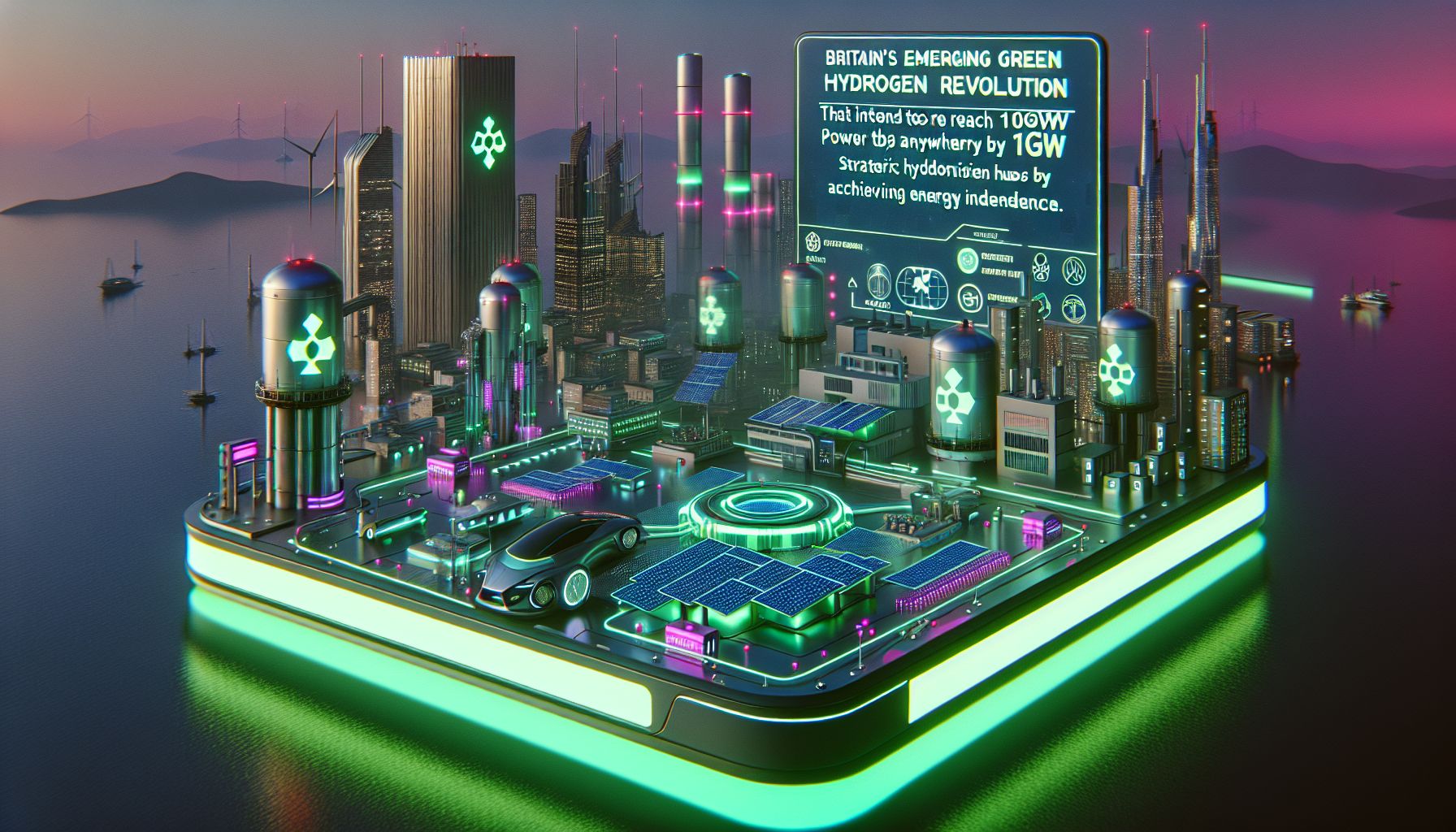Britain's Green Hydrogen Revolution: 10GW Power Play by 2050

London, Monday, 2 December 2024.
I’m excited to share how Britain is transforming its energy landscape. A groundbreaking study reveals plans for strategic green hydrogen hubs that could deliver 10GW of clean energy capacity by 2050. This isn’t just about power - it’s about reshaping our industrial future, from synthetic fuels to flexible energy delivery. The best part? These hubs can be placed almost anywhere, making this a truly nationwide opportunity for energy independence.
Unlocking the Potential
Imagine a future where green hydrogen isn’t just a buzzword, but a cornerstone of Britain’s energy strategy. This vision is coming to life, thanks to a detailed study that maps out how to integrate hydrogen into our energy system. By prioritizing green hydrogen hubs, Britain plans to meet its growing energy demands while reducing carbon footprints across various sectors like transport and industry[1].
The Strategic Advantage
What makes this initiative so thrilling is its flexibility. The hubs aren’t tied down to specific locations. This means they can be optimally placed to serve areas with the highest demand, ensuring efficiency and effectiveness. The study suggests that these hubs will not only supply energy but also support synthetic fuel production, offering a clean alternative to fossil fuels in transport and manufacturing[1].
Aligning with National Goals
These plans are perfectly in sync with Britain’s broader energy goals. As we edge closer to 2050, the emphasis is on achieving Net Zero emissions. With the National Grid’s Future Energy Scenarios guiding the way, these hydrogen hubs are a crucial piece of the puzzle. They promise a sustainable energy future that aligns with national targets and global climate commitments[2].
Economic and Environmental Impact
The economic benefits are clear. With up to 10GW of production capacity, these hubs could transform local economies, creating jobs and stimulating growth. Environmentally, the shift to green hydrogen is a leap towards reducing carbon emissions. It’s about setting a precedent for sustainable energy solutions that can be scaled and replicated globally[1][3].
A Future-Proof Energy Solution
As we look to the future, the adaptability and scalability of these hydrogen hubs make them a resilient choice for Britain’s energy needs. They offer a pathway to energy security and independence, reducing reliance on imported fuels. It’s a promising step forward, one that could position Britain as a leader in the global energy transition[1][2].